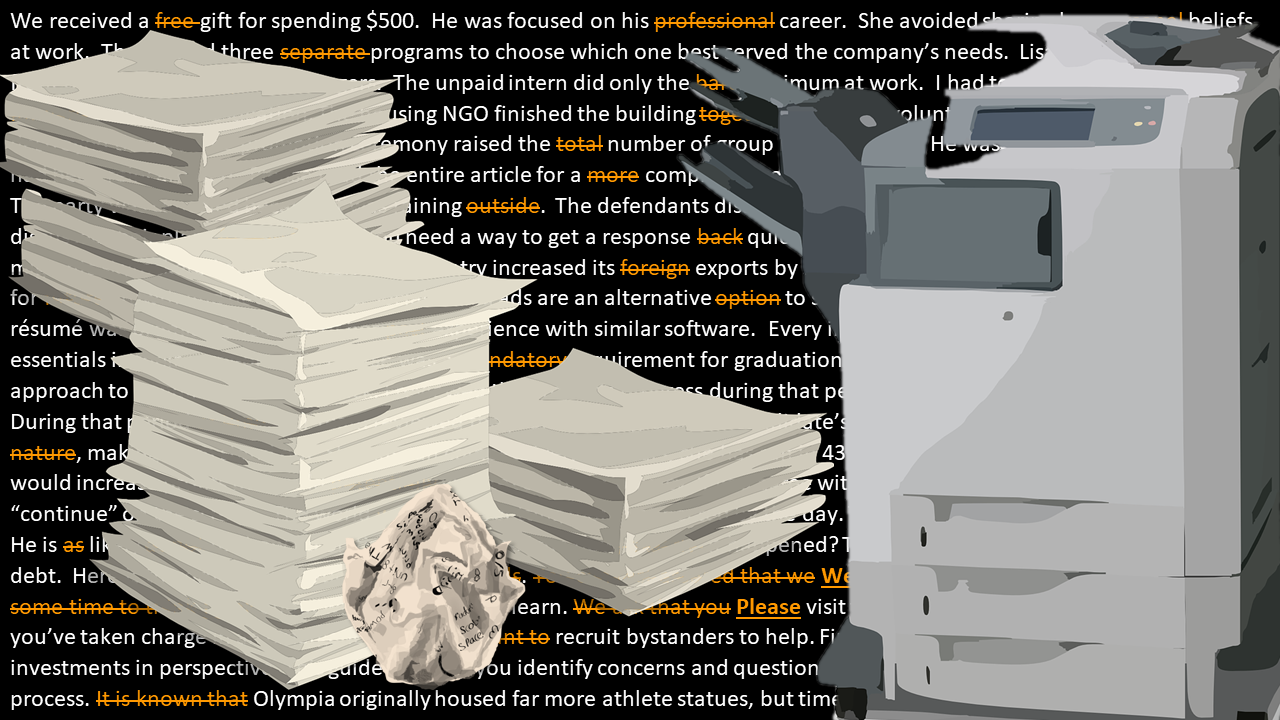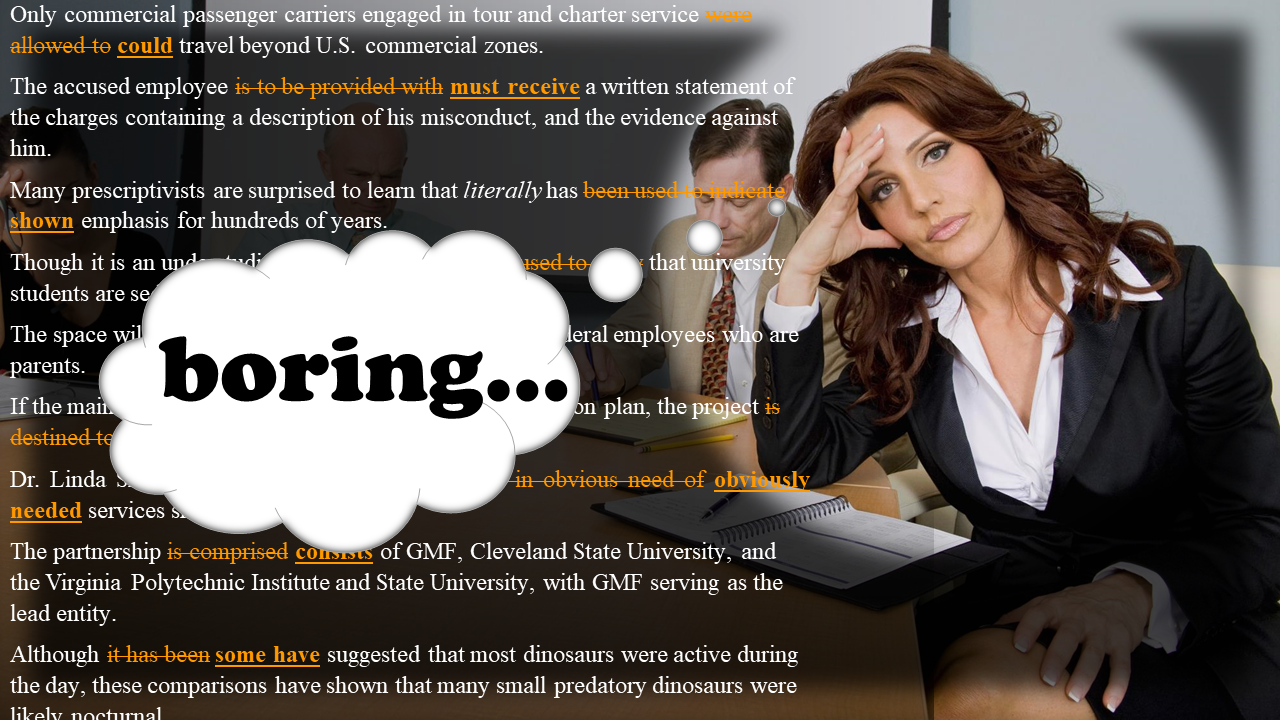It's hard to keep your mind on your task. The New York Times recently reported that brain fog is becoming an increasingly serious issue for the American workforce. The blahs that come from staring at your computer screen can be chased away by injecting some fun into your process. Enter gamification: adding elements of the gaming experience to a boring or unpleasant task to encourage you to complete it.
Continue readingIt’s common writing advice: Avoid redundancies. Redundant writing dilutes our message, kills subtlety, and wastes space and time. The words you waste with redundant language could be better used for examples to support your ideas or details that drive your point home and make it memorable. But redundancies are hard to spot without thinking deeply about every word in every sentence.
Continue readingEveryone remembers their high school English teachers admonishing them against using the dreaded passive voice. According to composition class lore, using passive voice was the chief writing sin—and avoiding it was the key to strengthening writing. If true, then two questions remain:
- What is passive voice, anyway? (Don’t worry: Even the most pedantic folks can get it wrong!)
- How do we re-write sentences to avoid passive voice? (What good is pointing out a writing ill without offering a writing cure?)
In this blog post, we’ll give you a refresher on passive voice, show you how to fix it, and explain the four times when passive voice is acceptable in your writing.
Continue readingGiving and receiving feedback on our writing is as much emotional work as it is intellectual. Writing is a process of opening one’s thoughts to examination and critique by whoever reads it, and whether we are deeply invested in the topic or creating a routine work report, it’s an exercise in vulnerability. Author and writing teacher Erin Lebacqz describes the editing and feedback process, and what we can do to be better at giving and receiving recommendations.
“Documents in our agency literally go through six rounds of edits!”
“My supervisor redlines my writing, but it feels like her comments are just based on personal style or preference!”
“I’ll submit a draft, and my direct supervisor will say he wants it one way, while the next level supervisor will say she wants it an entirely different way!”
Continue readingMaybe you’ve heard folks complaining about how young people tend to verb their nouns—adulting comes to mind. These new word constructions come from the need to make a static thing dynamic. In the case of adulting, the fact of living an adult life isn’t just a state of being, but takes constant and active maintenance. Verbing your nouns shows this constant state of motion.
Continue readingIf your job requires you to write regularly, consider your readers and today’s changing exposure to words when drafting your work. With every day’s onslaught of content from emails, text messages, social media, and meetings—both on and offline—modern office workers don’t have the time or patience to read unnecessary words to get to your point. Wordy writing is a great way to get someone to close an email or dump a proposal without finding out what it’s about.
Continue readingNominalizations—verbs or adjectives that have been converted into nouns—are common sources of obscurity, wordiness, and needless complexity in professional writing. While nominalizations may seem more formal when they appear in phrases like “reach a decision” or “make an assumption,” that requires equating formality with stodginess.
Continue readingEffective business communication relies on clear, concise, specific, and meaningful writing. Clichés fail all four requirements. In your first draft, a cliché may feel so easy and familiar to write that it seems irreplaceable. But, upon revision, you’ll see that clichés are unoriginal, broad generalizations—and often redundant. Delete them. Replace them. Your readers will reward you with their attention.
A major advantage of eliminating clichés from your business writing is the clarity and precision it brings. Without the clutter of overused phrases, your writing will be more persuasive and impactful, and you’ll be seen as more authentic, authoritative, and trustworthy.
Continue readingBeing understood in writing can be complex. The words we use express our expectations and tone, but readers often misinterpret the intention the author wishes to convey. In this edition of our business writing education series, author and book coach Anne Janzer explores how our expression of authority can unintentionally derail teamwork, and what to do about it.
Antonio manages a distributed team with people in different time zones. The team interacts daily through emails or messaging.
Antonio is frustrated that the team doesn’t collaborate well unless they’re all in a room together. When he tosses out an idea over email, either everyone agrees, or no one responds.
Continue readingIt’s one thing to want to communicate clearly, but knowing how to do it is a different matter. The International Organization for Standardization (ISO) made it easier last month by releasing Plain Language standards. These standards supply a framework for governments and private entities to make their publications more accessible.
Continue reading












